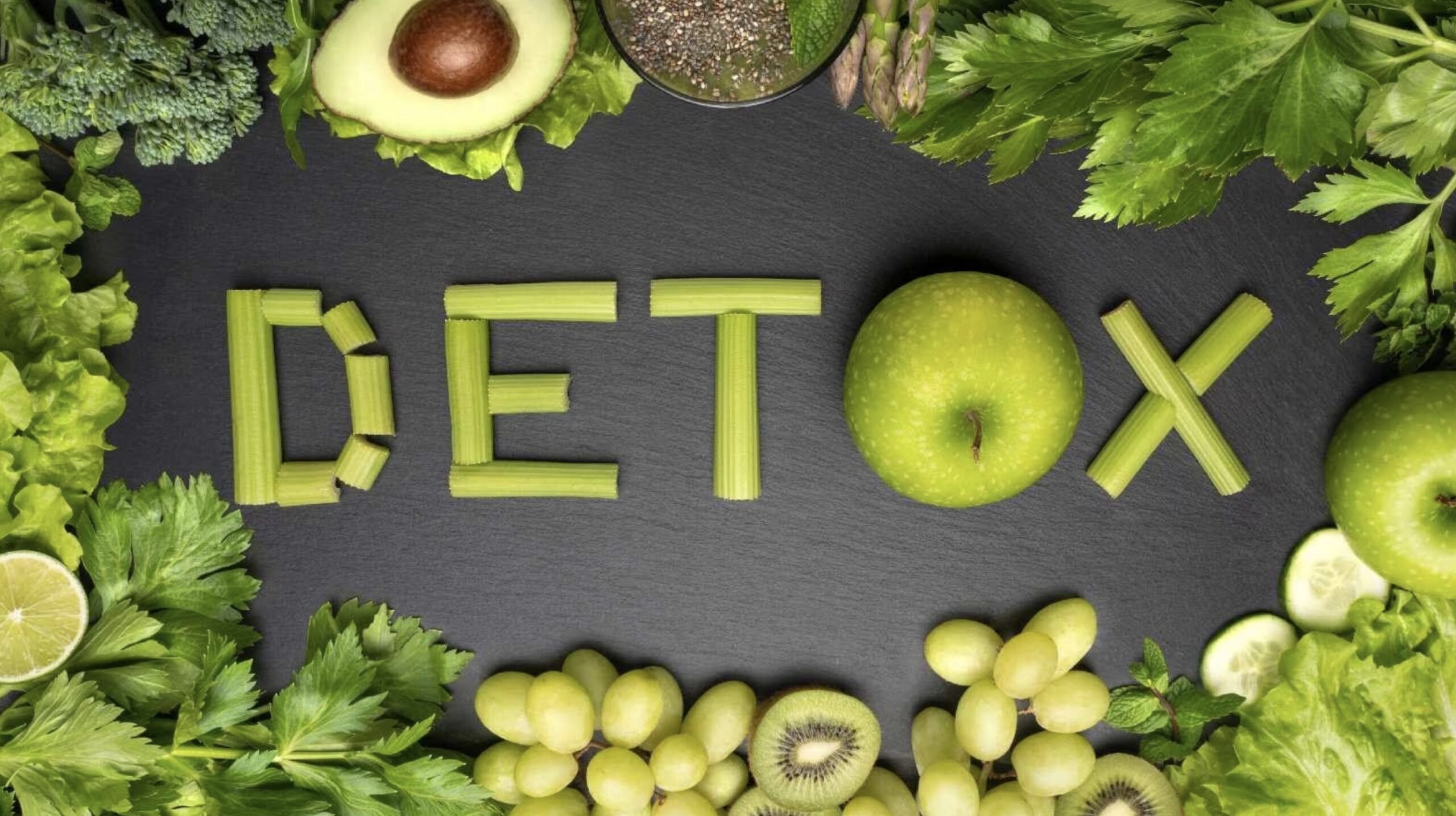The term “detox” can have a variety of meanings, including the removal of addictive drugs from the body. In the field of preventative medicine, however, it usually refers to metabolic detoxification. This process is the permanent cleansing of the body of chemicals and harmful waste products. Internal organs such as the liver, kidneys, skin, and lymphatic system work hard to keep the body detoxified.
To maintain our health and reduce the chemical load on the body, it is essential that these systems function properly. The modern lifestyle poses a constant challenge to the human body as it exposes it to the daily influence of harmful external factors. Adherence to a healthy lifestyle, a balanced diet and taking supplements can support the body’s natural detoxification.
Why do we need detoxification?
Detoxification is necessary because modern lifestyles and pollution in the environment expose our bodies to high levels of toxins. These toxins can cause oxidative stress, inflammation and other health problems. The process of detoxification helps the body rid itself of accumulated toxins and maintains healthy organ and system function.
Increased exposure to environmental chemicals
Although living organisms have been exposed to toxins in the environment for a significant part of history, in modern times exposure to chemicals has increased dramatically. With the advent of modern lifestyles, the likelihood of contact with a variety of toxins, including pesticides, herbicides, volatile organic compounds, preservatives, chemicals in clothing and furniture, plastic additives such as phthalates and bisphenol A (BPA), heavy metals (such as mercury), and many others, has increased significantly. This significant growth in chemical exposure is the result of rapid industrialization, technological advances and lifestyle changes in recent decades.
There have always been detoxification rituals
Throughout human history, there have been a variety of detoxification rituals across cultures. Embedded in the many ancient customs is the quest to cleanse and restore the body. If we trace the traditions of Native American tribes, for example, we will notice practices to stimulate sweating and release toxins through the skin.
In this context, herbal medicines also play a key role in the detoxification process. Shamans in these communities mixed various herbal ingredients whose purpose was to aid in cleansing the body and restoring health. These ancient rituals reflect the belief that spirit, body and nature are one. The processes of sweating, consuming herbs and other detoxification methods not only served for physical cleansing, but also for spiritual and energetic restoration.
Relationship to premature aging
Research has continually confirmed the direct link between metabolic toxin load and various aspects of health: in particular, premature aging. Oxidative stress, which occurs with increased exposure to toxins, plays a key role in this process. This stress leads to increased formation of free radicals that can affect cellular health. High concentrations of toxins can also trigger inflammatory processes in the body that also contribute to premature aging and the development of chronic diseases.
7 steps to reduce toxins in the body
Don’t overdo the alcohol:
Alcohol is metabolized primarily in the liver and kidneys. Alcohol abuse can cause serious problems for these organs. When consumed in moderation, the body is able to handle alcohol, but excessive intake can lead to toxic effects on the liver and kidneys. The liver plays an important role in removing toxins and metabolites from the blood.
Drink more water:
Intake of sufficient amount of water during the day is critical for healthy functioning of the body. Water not only helps blood and lymph flow, but also aids in natural sweating. Adding lemon and sea salt to water can enhance the detoxification process as it helps cells absorb and use water more efficiently.
Eat organic products from humanely raised animals:
Avoid eating animal products from artificially raised animals, which are often contaminated with synthetic hormones, antibiotics and pesticides. Consume organic products to reduce the risk of overexposure to these harmful substances. Keep in mind that a vast majority of store-bought foods contain pesticide residues that have been linked to the risk of developing various diseases.
Eat quality food:
Include foods such as cruciferous vegetables, beets, garlic, ginger, berries, organic soy, and spices such as cayenne pepper and turmeric in your diet. These products contain secondary compounds that support metabolic detoxification and regulate liver function.
Exercise:
Sport is essential for detoxification, aiding blood flow and sweating. Sweating provides an effective way to remove toxins through the skin. Incorporate visits to saunas, steam rooms or the gym into your daily regime. This holistic approach to detoxification helps maintain a healthy balance in the body.
Nutritional supplements for detoxification
Incorporating a variety of herbs to your routine can amplify the detoxification process. Specialized detoxification supplements focus on supporting one or more of the six biochemical phases of detoxification, namely: acetylation, amino acid conjugation, glucuronidation, glutathione conjugation, methylation, and sulfation.
Nutritional supplements that enrich these phases include:
- Milk thistle: Milk thistle is known for antioxidant properties and is used to support the liver. The bioactive compounds it contains prevent toxins from attaching to liver cells. Thus, they support its normal function. Milk thistle aids the process of breaking down and eliminating toxins from the body.
- Dandelion root: Dandelion is known for its detoxifying properties. The extract of this plant helps optimize liver function and facilitates the elimination of toxins by aiding metabolism and diuresis. It supports the liver by improving its detoxification functions and eliminating waste from the body.
- Glutathione or NAC (N-acetyl cysteine). Its form NAC (N-acetyl cysteine) is used to aid in the processes of conjugation – binding toxins and heavy metals to other molecules. In this way, harmful substances are more easily eliminated from the body. NAC reduces oxidative stress that can be caused by harmful substances in the body.
These supplements often come in various forms such as capsules, tablets or as an herbal tea.
In conclusion:
Some detoxification regimens can be repeated throughout the year. Be sure to consult a doctor to avoid possible unwanted side effects that often accompany the detoxification process. These unpleasant symptoms may include: body aches, headaches and fatigue.
Although taking supplements can be beneficial, dietary habits, stress management and physical activity remain key approaches to effective detoxification of the body.

